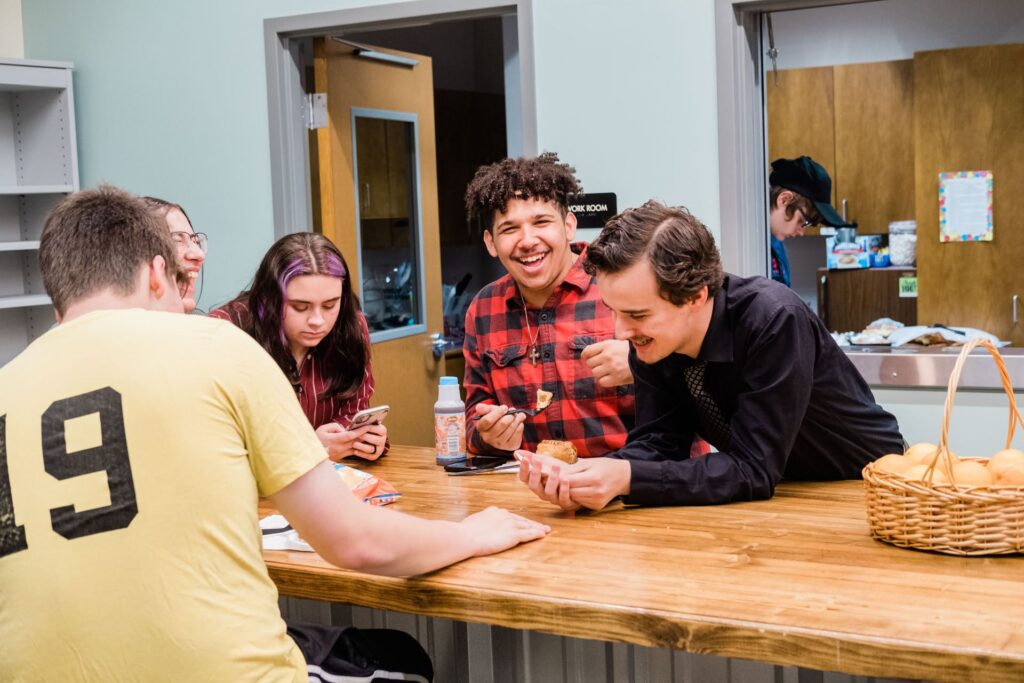From sidewalk lemonade stands and Girl Scout cookie sales to student-run school stores, young learners have long been exposed to the experience of entrepreneurship. But today, in schools and out-of-school-time settings, many students are learning through entrepreneurship education. Whether it is taught as a semester-long class or introduced to kids through workshops or pitch competitions, entrepreneurship education serves as a vehicle for learning both the mechanics of running a successful business and the broader 21st-century skills that all students will need as adults.
In the Pittsburgh region, programs and organizations like the Network for Teaching Entrepreneurship (NFTE), Harbor Freight EdCorps, BUILD, and Penn Hills Charter School of Entrepreneurship are bringing entrepreneurial education to K-12 schools and out-of-school-time settings.
What is entrepreneurship education?
Although it takes many forms, entrepreneurship education generally involves teaching students:
- How to develop a business idea that could really be viable
- How to create a business plan to support that idea
- How to pitch that idea to potential investors
- How to run a business
As students are coached through these steps, they learn to think like entrepreneurs – testing and iterating their ideas, and “failing forward” as they go. That iterative process helps students develop patience and grit, and also helps them understand that even businesses they perceive as overnight successes actually took time and effort to launch.
There is a huge focus on problem-solving: What do customers need? How are these needs being met in the marketplace today, and what new products or services could better meet them? How can these offerings be created in a way that minimizes costs while creating high-quality results?
The national nonprofit BUILD offers a curriculum that uses human-centered design to tackle these questions and many others. It all begins with ideation. Students isolate a problem their potential customers have, then they brainstorm potential solutions. They prototype and test these solutions, building an entrepreneurial mindset along the way.
What does it look like in practice?
There is so much variety in the structure of entrepreneurial education in our region. Some students do a deep dive during semester-long elective courses in school while others may wade into business concepts through single-day workshops or afterschool programs.
In some cases, entrepreneurial education involves actually creating a product and selling it. That’s how it works in the Harbor Freight EdCorps program used at the Intermediate Unit 1 (IU1) campus at Redstone, Waynesburg and McMurray.
EdCorps, a national initiative of Real World Scholars, teaches a range of trade skills and entrepreneurial skills. Students create their own products and sell them online using the technology at the IU1 Fab Labs. While these students are conducting a real business (income from sales goes back into the program), the focus is on the soft skills and trade skills they’re learning.
At Penn Hills Charter School of Entrepreneurship, this kind of learning is threaded through the entire day using tools that include NFTE’s curriculum. Students from kindergarten through sixth grade operate as citizens in a “micro-society” called SoarMania, where grade levels function as countries and each classroom is its own city, electing its own mayor. Students apply for jobs and spend the last hour of each day going to different classrooms to do their work.
One group might be learning to code at their robotics business, then teaching other students to code. Others may be custom printing posters to sell on the SoarMania website. Some run the student cafe, while other kids are busy in the Big Idea Center teaching their fellow citizens how to create podcasts.
What are the benefits of entrepreneurship education?
All kinds of learning – math, science, history, language arts – ripple out from these experiences. Kids can apply these concepts to real world situations. And as they build the skills of problem-solving and decision-making while planning or running businesses, they also get a better understanding of the commercial landscape in which we all live. They discover the thinking behind pricing, for example, and the ways marketing strategy can influence people.
What are the challenges facing entrepreneurship education?
Entrepreneurial skills take time to build. So while single-day courses can be valuable for sparking students’ interest, they don’t deliver the kind of learning that comes from experimenting and iterating. Ideally, students will have the chance to progress from single-day experiences to more in-depth classes. But not all schools currently offer entrepreneurial education, and schools who want to offer don’t always have the staff available to teach it. So although programs like NFTE and BUILD are eager to share curriculum that can be used for elective courses or incorporated into other classes, not all schools currently offer this kind of learning.
Why is entrepreneurship education growing today?
With the world changing at lightning speed, we can’t say what kinds of jobs today’s students will one day pursue. But we know that they’ll need skills like problem-solving, collaboration, communication and creative thinking. And we see in today’s startup-filled world that a great many of today’s students may one day launch their own businesses and or run profitable side hustles during the course of their working lives.
A trend report released last year by the Network for Teaching Entrepreneurship (NFTE) noted that when the accounting firm Ernst & Young surveyed Gen Z-aged people, nearly half of the respondents reported being “very likely or extremely likely to start their own business one day.”
Entrepreneurship also fits beautifully with the goals of many educators: It is perfect for project-based, personalized learning and blends beautifully with a wide variety of academic and non-academic subjects.
It also fosters student voice and agency, giving kids the inspiration and the tools to potentially move from dreaming of starting a business all the way to launching their own business while still in school.
